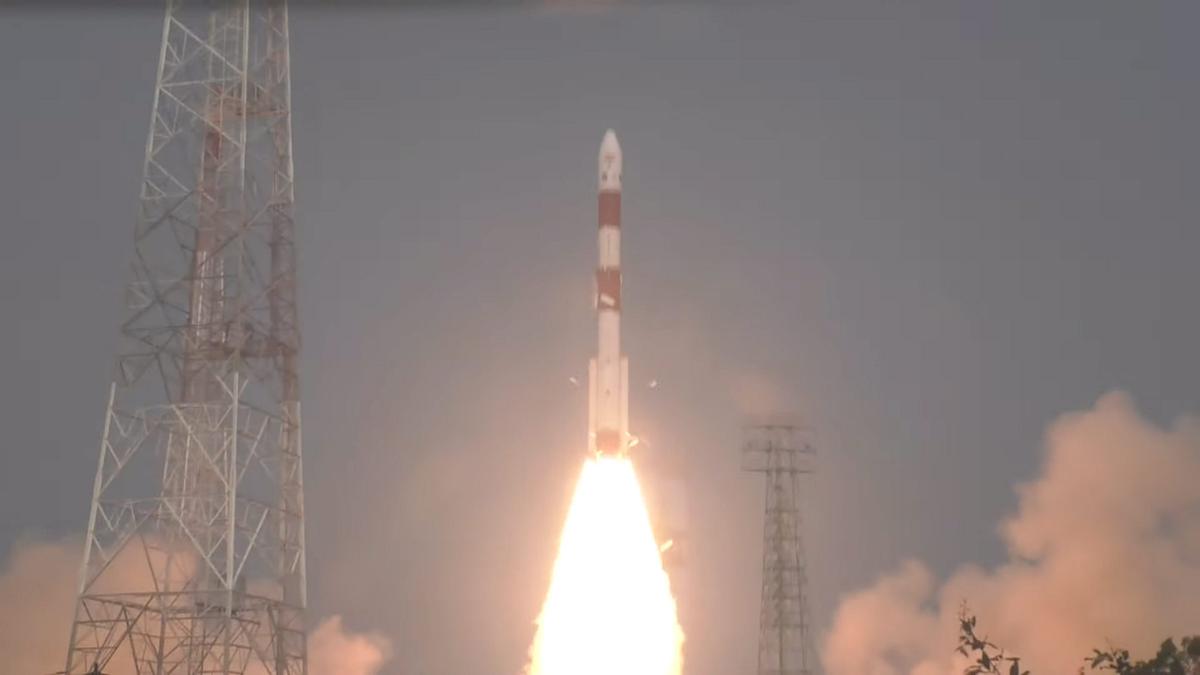PSLV rocket with X-Ray polarimeter and 10 other satellites lifts off from Sriharikota

Sriharikota (Andhra Pradesh): A PSLV rocket carrying a total of 11 satellites including ISRO’s X-Ray polarimeter satellite lifted off from a spaceport here on Monday.
ISRO’s maiden X-Ray Polarimeter Satellite would offer insights into celestial objects like black holes.
The PSLV-C58 rocket, in its 60th mission, carried primary payload XPoSat and 10 other satellites to be deployed in low earth orbits.
It is the first dedicated scientific satellite from the ISRO to carry out research in space-based polarisation measurements of X-ray emission from celestial sources.
Besides the ISRO, the US-based National Aeronautics Space Agency (NASA) conducted a similar study — the Imaging X-Ray Polarimetry Explorer mission in December 2021 on the remnants of supernova explosions, the particle streams emitted by black holes and other cosmic events.
While space-based X-ray astronomy has been established in India focusing on imaging, and time domain studies, Monday’s mission marks a major value-addition to the scientific fraternity, the space agency said.
The objective of the PSLV-C58 mission includes measuring polarisation of X-rays in the energy band 8-30 keV emanating from about 50 potential cosmic sources, to carry out long-term spectral and temporal studies of cosmic X-ray sources.
The X-Ray polarisation serves as a crucial diagnostic tool for examining the radiation mechanism and geometry of celestial sources. The primary payload of XPoSat is POLIX (Polarimeter Instrument in X-Rays) which is designed to measure polarimetry parameters by Raman Research Institute and XSPECT (X-ray Spectroscopy and Timing) built by the U R Rao Satellite Centre, Bengaluru.




